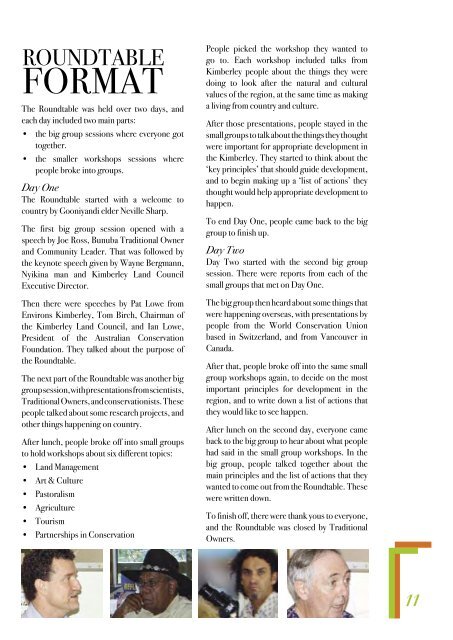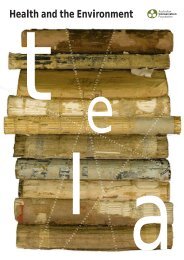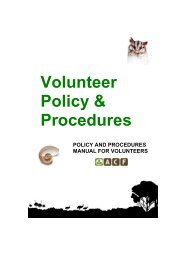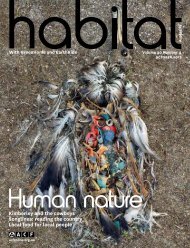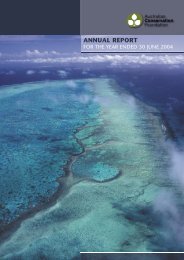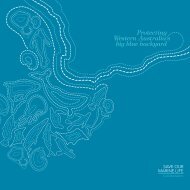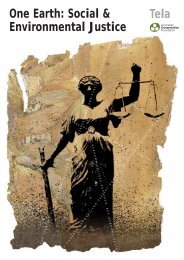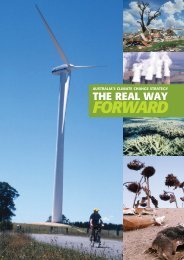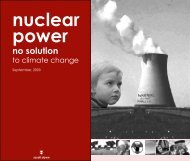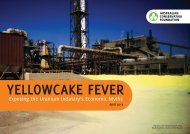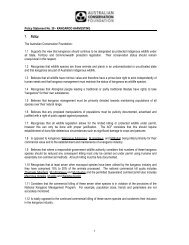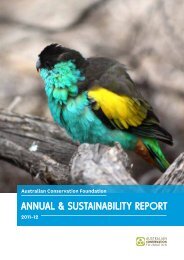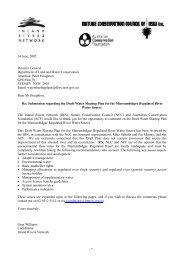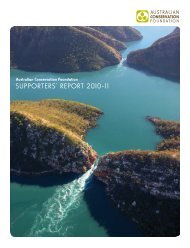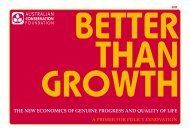Kimberley Appropriate Economics Interim Report - Australian ...
Kimberley Appropriate Economics Interim Report - Australian ...
Kimberley Appropriate Economics Interim Report - Australian ...
You also want an ePaper? Increase the reach of your titles
YUMPU automatically turns print PDFs into web optimized ePapers that Google loves.
ROUNDTABLE<br />
FORMAT<br />
The Roundtable was held over two days, and<br />
each day included two main parts:<br />
• the big group sessions where everyone got<br />
together.<br />
• the smaller workshops sessions where<br />
people broke into groups.<br />
Day One<br />
The Roundtable started with a welcome to<br />
country by Gooniyandi elder Neville Sharp.<br />
The first big group session opened with a<br />
speech by Joe Ross, Bunuba Traditional Owner<br />
and Community Leader. That was followed by<br />
the keynote speech given by Wayne Bergmann,<br />
Nyikina man and <strong>Kimberley</strong> Land Council<br />
Executive Director.<br />
Then there were speeches by Pat Lowe from<br />
Environs <strong>Kimberley</strong>, Tom Birch, Chairman of<br />
the <strong>Kimberley</strong> Land Council, and Ian Lowe,<br />
President of the <strong>Australian</strong> Conservation<br />
Foundation. They talked about the purpose of<br />
the Roundtable.<br />
The next part of the Roundtable was another big<br />
group session, with presentations from scientists,<br />
Traditional Owners, and conservationists. These<br />
people talked about some research projects, and<br />
other things happening on country.<br />
After lunch, people broke off into small groups<br />
to hold workshops about six different topics:<br />
• Land Management<br />
• Art & Culture<br />
• Pastoralism<br />
• Agriculture<br />
• Tourism<br />
• Partnerships in Conservation<br />
People picked the workshop they wanted to<br />
go to. Each workshop included talks from<br />
<strong>Kimberley</strong> people about the things they were<br />
doing to look after the natural and cultural<br />
values of the region, at the same time as making<br />
a living from country and culture.<br />
After those presentations, people stayed in the<br />
small groups to talk about the things they thought<br />
were important for appropriate development in<br />
the <strong>Kimberley</strong>. They started to think about the<br />
‘key principles’ that should guide development,<br />
and to begin making up a ‘list of actions’ they<br />
thought would help appropriate development to<br />
happen.<br />
To end Day One, people came back to the big<br />
group to finish up.<br />
Day Two<br />
Day Two started with the second big group<br />
session. There were reports from each of the<br />
small groups that met on Day One.<br />
The big group then heard about some things that<br />
were happening overseas, with presentations by<br />
people from the World Conservation Union<br />
based in Switzerland, and from Vancouver in<br />
Canada.<br />
After that, people broke off into the same small<br />
group workshops again, to decide on the most<br />
important principles for development in the<br />
region, and to write down a list of actions that<br />
they would like to see happen.<br />
After lunch on the second day, everyone came<br />
back to the big group to hear about what people<br />
had said in the small group workshops. In the<br />
big group, people talked together about the<br />
main principles and the list of actions that they<br />
wanted to come out from the Roundtable. These<br />
were written down.<br />
To finish off, there were thank yous to everyone,<br />
and the Roundtable was closed by Traditional<br />
Owners.<br />
11


